How to have a howling good time this Halloween - and stay safe
Halloween fun might look a bit different this year. Take a look at our tips for safe trick-or-treating and find out where this spooky tradition came from
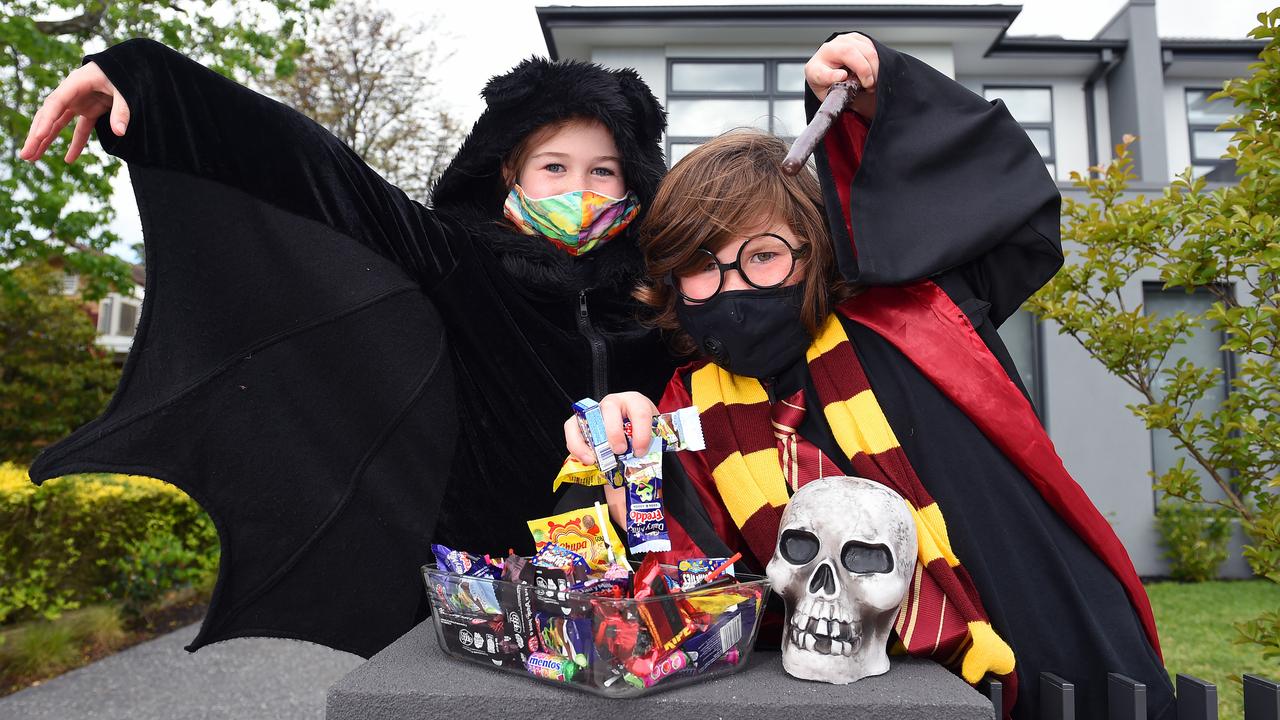
READING LEVEL: GREEN
That shiver down your spine might be the thrill of anticipation – or perhaps it’s a ghostly presence creeping up behind you? Yes, it is Halloween on Sunday and scores of Australian children are already salivating like wolves.
Everyone deserves a howling good time after the challenges of the year – including long months of lockdown and homeschooling for those in Victoria and NSW – but a Covid-safe celebration is going to keep the real trouble away.
Halloween is the perfect time for wearing a mask as plenty of costumes come with one, but there some extra things you and your family can do to keep everyone in the community safe while making this a Halloween to remember.
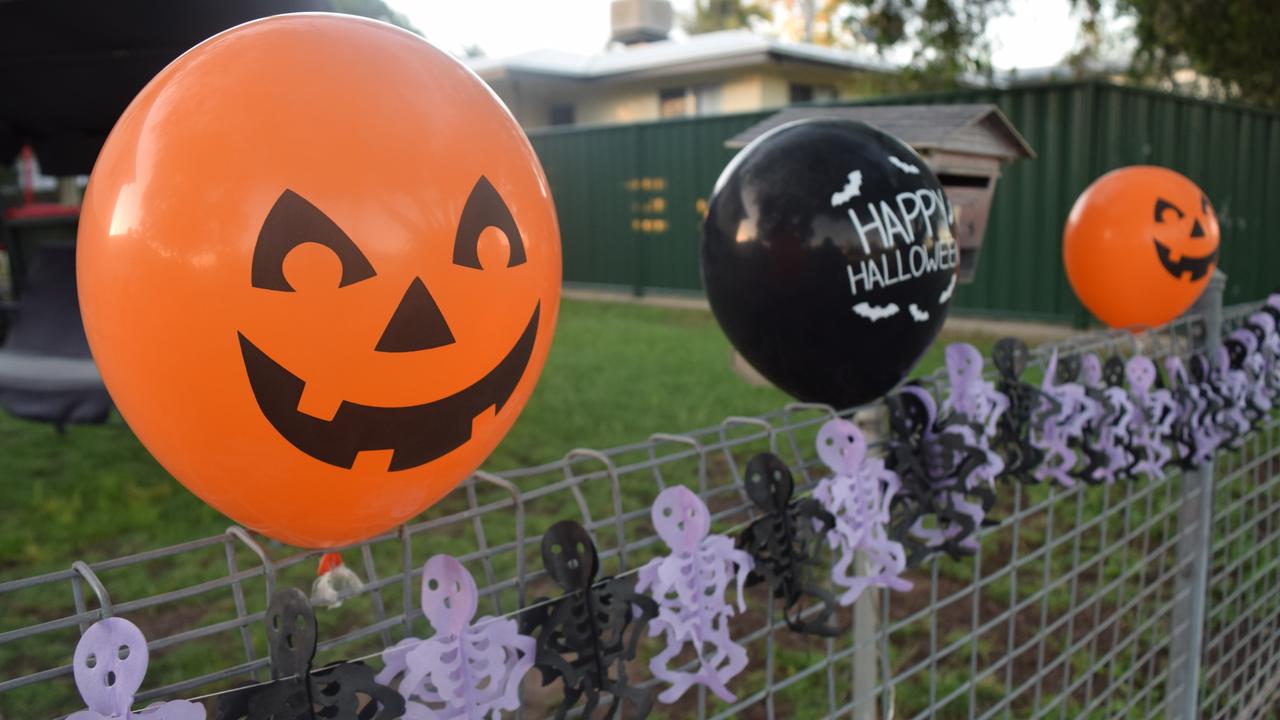
TOP TIPS FOR TRICK-OR-TREATING
If you have any symptoms of coronavirus, get tested, stay at home, and have a virtual Halloween that includes a video chat with family and friends and your favourite Halloween film.
Don’t forget you can still carve a pumpkin, decorate your house and have a lolly scavenger hunt even if you have to stay home!
If you are heading out, wear a face mask. If you have a costume mask that is part of your Halloween outfit, ensure it completely covers your nose and mouth. If it doesn’t provide adequate protection, consider decorating a standard face mask.
Social distancing is tricky when everyone is excited, but when you are walking the neighbourhood streets, keep 1.5m between yourself and people you don’t live with. Don’t hug or kiss when greeting people – and do not share any food or drinks.
Keep the party outside, either in a public place like a park or beach, or at home in the backyard.
Carry spare face masks and hand sanitiser.
Grown ups should check state government websites for the latest restrictions.
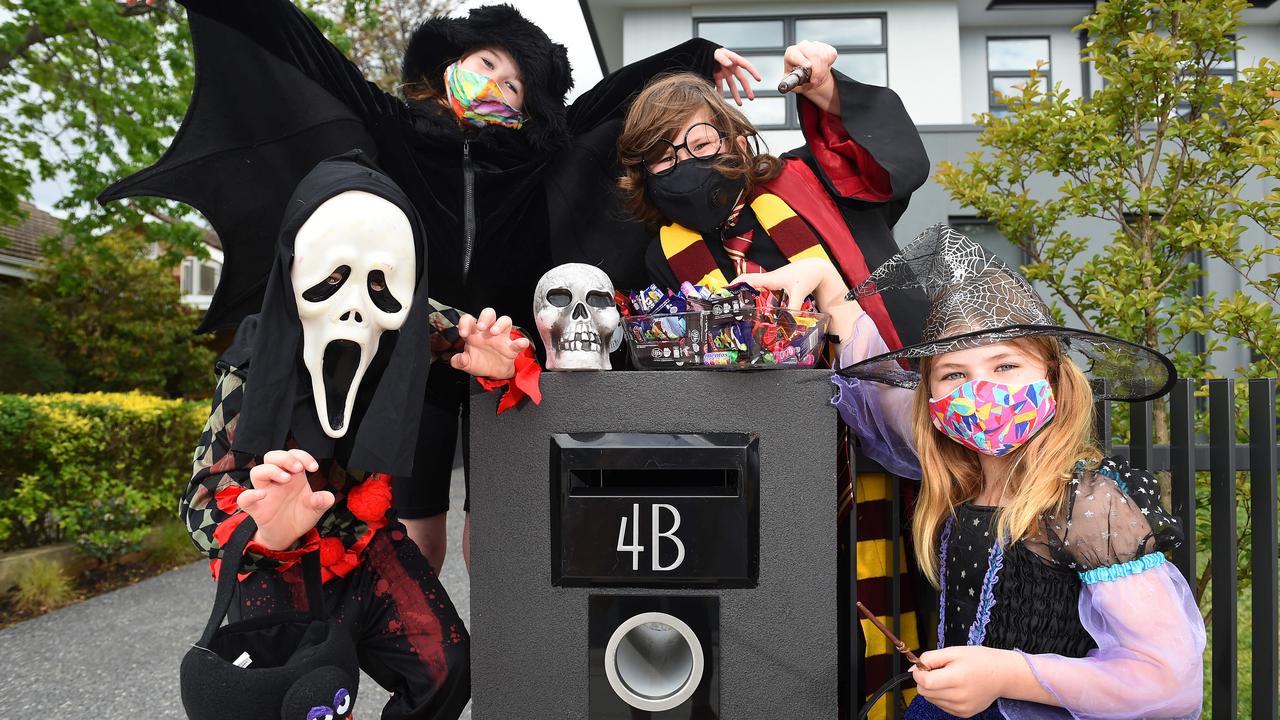
COVID-SAFE CANDY
And now for the main event. Sure, it’s called “trick-or-treating”, but let’s be real. Everyone knows it’s really all about the treats. And things have to be a little different this year. These tips apply whether you are giving or getting the good stuff – and you should share this information with your parents or carers as well.
It is much safer not to personally hand out lollies or take them from someone else’s hand, because the virus can spread on surfaces, including food and packaging.
Restrictions vary around Australia, but it is much safer not to knock on someone’s door and have physical contact with them – even if it is allowed where you live. Only visit houses where candy is left outside and the residents are maintaining appropriate social distance from trick-or-treaters.
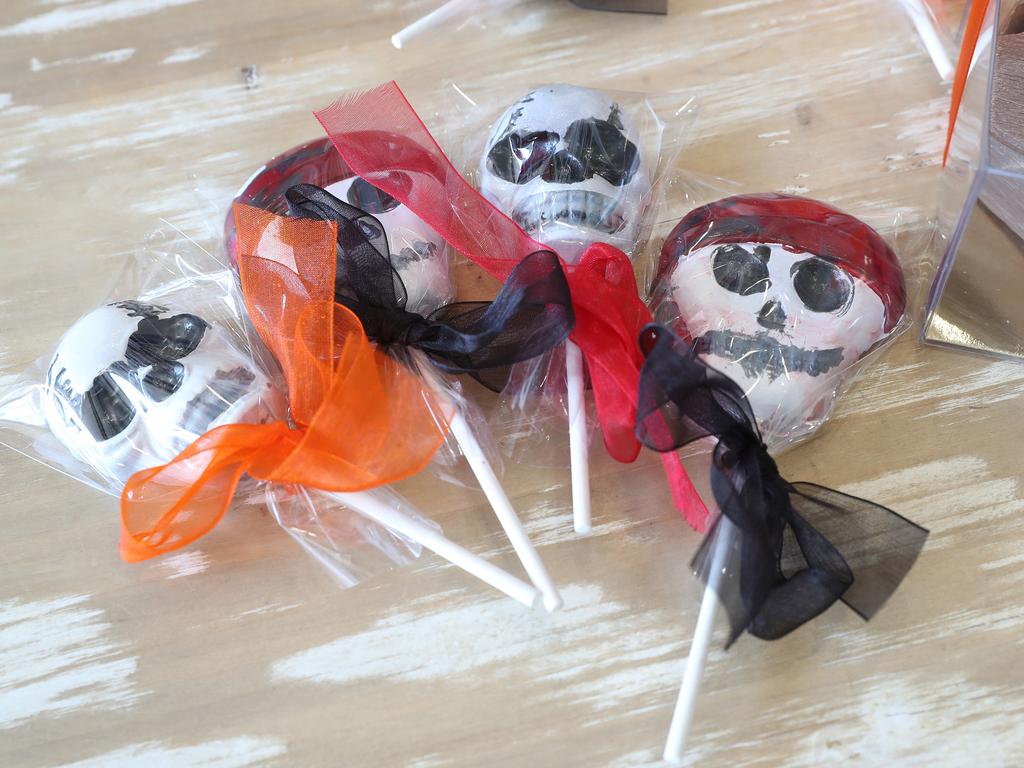
Do not accept loose lollies – for example, a big bag of snakes or smarties tipped into one bowl. If everyone can touch the same lollies, remember that those lollies are not safe.
Only offer and accept individually wrapped lollies and chocolates – a good rule to live by whether it’s Halloween or any other celebration.
Consider making up individual lolly bags for non-contact collection. You can leave them on a table on the street or hang them from your fence and front gate.
Whatever your plans, wash your hands thoroughly before you start and as soon as you get home.
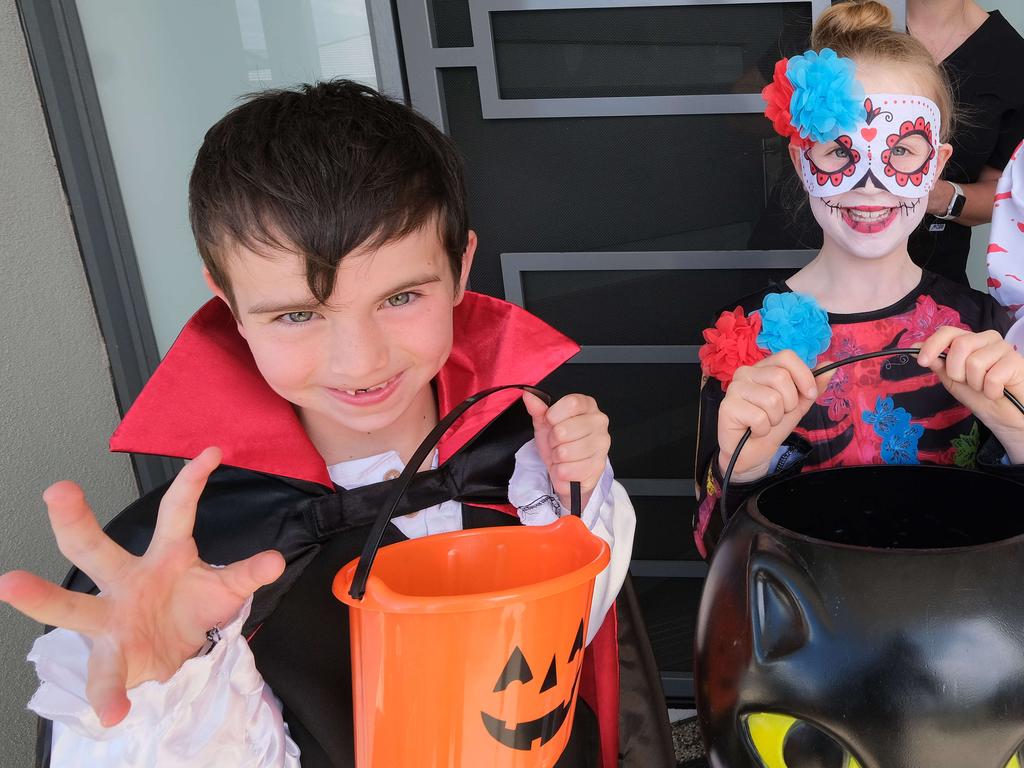
HALLOWEEN HISTORY
Dressing up is the other exciting part of Halloween – especially for everyone emerging from their homes like vampires! Watching your street fill with ghosts, ghouls, witches and wizards is so much fun, but did you know this spooky day of dressing up and trick-or-treating hasn’t always been popular in Australia?
University of Sydney American Studies lecturer Dr Rodney Taveira said the rise of Halloween in recent years is part of a broader change in which Australians are increasingly influenced by the US.
“Australians, especially younger Australians, are looking to the US with greater frequency* and accessibility*,” he said.
“Halloween has become a part of Australian culture and has become normalised by its repeated appearance on American television, film and social media.”
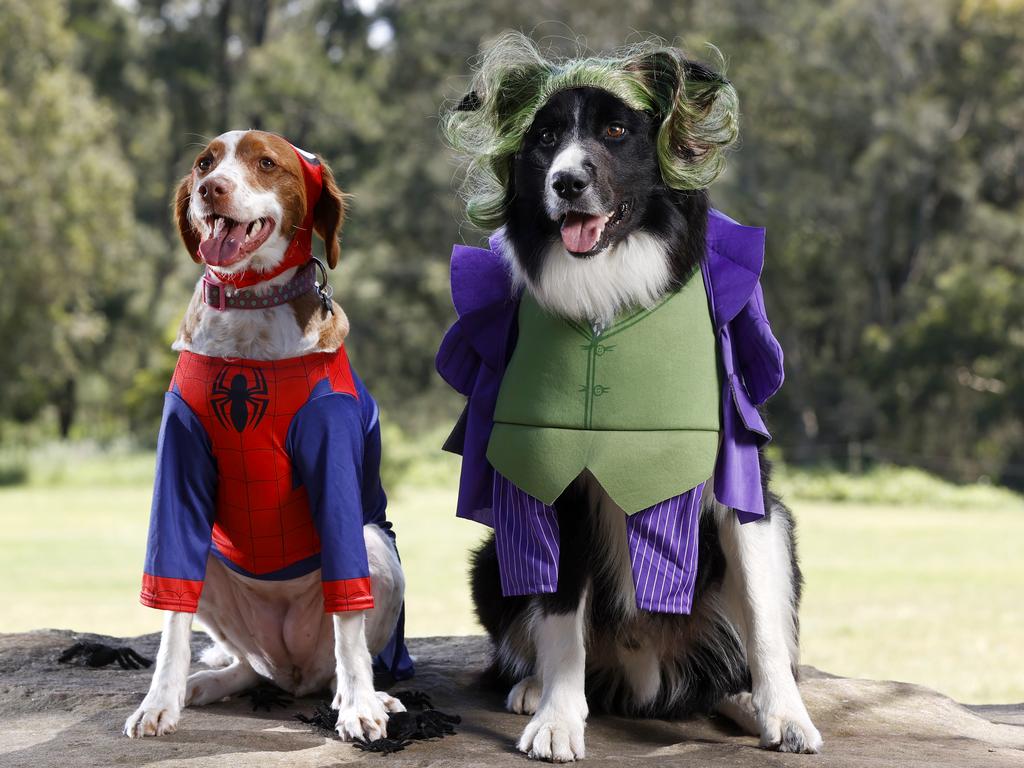
Increasingly, communities around the country are embracing the idea of little superheroes and creative characters knocking on doors on October 31. Indeed, research released by Woolworths in 2016 suggested seven in 10 households with kids aged between five and 14 were already celebrating the event and that figure has likely grown since then.
And while Australians often look to the US for Halloween inspiration, it wasn’t always a big deal there either. It’s actually an ancient tradition with European heritage* dating back thousands of years, when northern European Celts* believed dead souls visited Earth on October 31.
They had a festival to honour the passing souls called Samhain. It involved bonfires and lanterns with faces carved out of large turnips.
Later, the Catholic Church began celebrating All Saints’ Day (also known as Allhallows) on November 1. The day included some Samhain traditions and celebrated saints and other people who had died for their religion.
October 31, the night before Allhallows, was named Hallows Eve and later changed to Halloween.
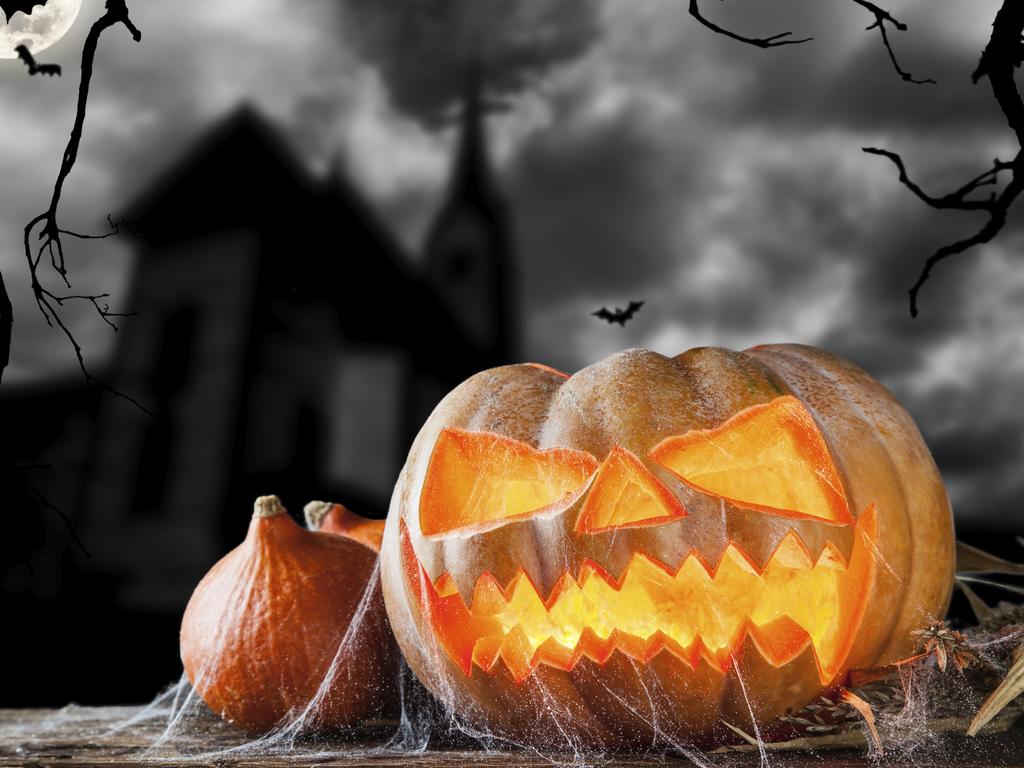
Europeans of the time believed spirits visited Earth on Halloween, so they thought if they dressed up like them, the spirits would think they were dead and leave them unharmed. This is where the tradition of dressing up in scary costumes originated*.
Towards the end of the nineteenth century, Irish immigrants* brought their Halloween traditions to the US and popularised* the spooky celebrations.
Irish people carved turnips or potatoes into jack-o’-lanterns before they arrived in the US and then switched to the larger, brighter pumpkins.
Additional reporting by Tamsin Rose, Luke Costin
GLOSSARY
- frequency: how often something happens
- accessibility: easy to obtain, use or experience
- heritage: features belonging to the culture of a particular society or group
- Celts: collection of tribes with origins in central Europe
- originated: began, started, stemmed from
- immigrants: people who come to live permanently in a foreign country
- popularised: has become known and understood by most ordinary people
EXTRA READING
Gaps in childhood tooth brushing
Sun goes all spooky for Halloween
Spooky goings-on at night in the museum
QUICK QUIZ
- What is the date on which Halloween is celebrated each year?
- How many households with kids aged five to 14 were celebrating Halloween in 2016?
- Thousands of years ago, what did Celts think happened on the October 31?
- Who brought Halloween to the US?
- What was used before pumpkins to make jack-o’-lanterns?
LISTEN TO THIS STORY
CLASSROOM ACTIVITIES
1. Design an outfit
Design the scariest Halloween outfit ever!
Time: allow 25 minutes to complete this activity
Curriculum Links: English; Design and Technologies; Visual Communication Design
2. Extension
“Aussie kids shouldn’t celebrate Halloween – it’s American!” What do you think? Write a paragraph or design a poster explaining or showing why you DO or DO NOT agree with this statement.
Time: allow 25 minutes to complete this activity
Curriculum Links: English; History; Visual Communication Design
VCOP ACTIVITY
Promo piece
Write an eerie description of Hallows Eve for the local paper to promote their Halloween festival.
The festival will be celebrating a more traditional Halloween, so try to think about how it might have been celebrated hundreds of years ago.
Enhance your story with your VCOP.


